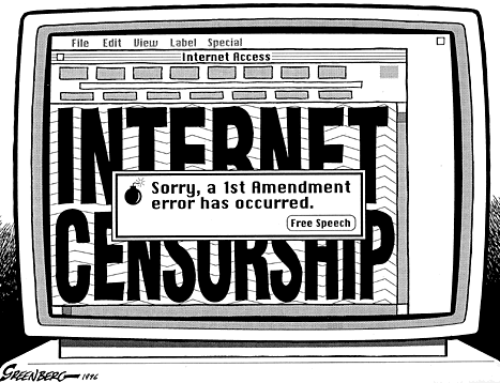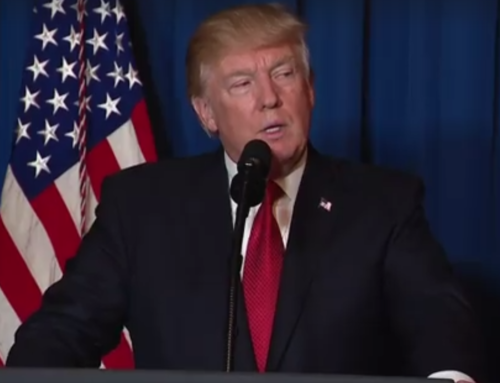There’s no shortage of First Amendment fodder as this unprecedentedly weird election cycle unfolds. Where do the candidates stand? Here’s a few things you should know.
The most important First Amendment position taken by any of the candidates is Democrat Hillary Clinton’s announcement that she would seek a reversal of the Supreme Court’s ominously democracy-hobbling 2010 Citizen’s United ruling. That case essentially opened the floodgates to unlimited corporate campaign spending and in doing so proportionally weakened the voices of flesh-and-blood voters. (Yes this is a gross oversimplification, feel free to read the 183 page case here.) For those of you wishing to live in a country with a functioning system of representation, this alone could be reason enough to support Clinton’s campaign – but be prepared to put your boots on the ground because change is likely to come only through an arduous constitutional amendment effort. Upside: Maybe we can get the ERA passed in the process.
Republican Donald Trump’s understanding of the First Amendment is about as sophisticated as his grasp of any other campaign issue. Disgusted with the media’s unflattering portrayal of him and his endless gaffes, Trump recently claimed (by tweet – the one written format with a character limit that perfectly matches his attention span) a New York times expose on his campaign’s internal dysfunction wasn’t protected speech because it was false. As it turns out, the word “false” in Trumplandish has a number of meanings in English – including opinions based on a source’s experience and political arguments – all of which are protected by the First Amendment. On the other hand, there’s some indication that a Trump victory could expand the definition of Free Speech to include, among other things, plagiarism – so perhaps the prospect of totalitarian rule has a silver lining.
Libertarian Gary Johnson has been largely mum on the First Amendment insofar as it relates to speech and media, but he’s an outspoken opponent of the terrifying Religious Freedom Restoration Act (which in the interest of wiping the lipstick off that pig should truthfully be titled the Religious Discrimination Restoration Act). Johnson also generally favors limited government interference – a position that hopefully would extend to the entire Bill of Rights, but you never know where a candidate will begin to get selective about their definition of “small” government.
Green Party candidate Dr. Jill Smith has run a campaign free of Super PAC dollars in keeping with her opposition to Citizens United, and like Clinton has called for a constitutional amendment to overturn the case. She’s gotten so little media coverage in the anti-democratic squeeze of our two party system that it’s hard to know where she stands on any concrete press freedom issue. Unfortunately we’re not likely to learn more given that both third party candidates have lost their bid to participate in the debates.
So that’s a bit about what we know at this point. What say you, First Amendment watchers – any observations about where this election is going and what you’re thinking it means for speech and media freedom?






Getting a constitutional amendment passed is a herculean task to say the least. You need 2/3 of congress, 2/3 of the governors and 2/3 of the voters. Good luck Ms. Clinton. Trump wants to muffle the press, unless they agree with him, he has be leaning toward a totalitarian government, yuck. As far as I can see, neither the democratic nor the republican candidate will get their way on that.
So true, Tony – the First Amendment visions laid out by both of the candidates face some challenges. While in Trump’s case that’s probably a good thing (after all, it would be nice to continue to have the right to voice our political opinions and criticize our leaders) there may be more than one way to bring about reform on campaign finance. While the Supreme Court is hesitant to overrule precedent, historically it’s found a way to do so when the tide of public opinion has shifted so thoroughly on an issue that it’s clear the precedent no longer represents the will of the people. Marriage-equality is a recent example of this. If voters become more aware of and vocal in opposition to the election-hijacking effect of Citizen’s United, the Court may be convinced to change its tune if the right test-case can be found. In the meantime, amending the constitution might be difficult, but it’s not impossible. Grassroots movements that have brought about recent sweeping changes to constitutional rights (the NRA comes to mind) provide models of how the task could be accomplished.